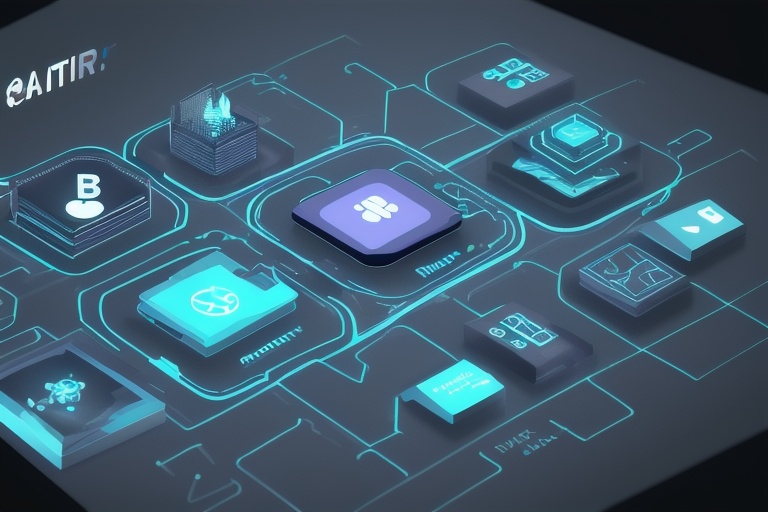Artificial Intelligence: Contributions to Our World and What Lies Ahead
Artificial Intelligence: Contributions to Our World and What Lies Ahead
Artificial Intelligence (AI) has undeniably reshaped the landscape of technology and everyday life over the past decade. From the ubiquitous presence of virtual assistants such as Siri and Alexa to tailored content on our favorite streaming services, AI's influence is both profound and persisting. This exploration delves into AI's transformation, spotlighting pivotal advancements and breakthroughs that have defined the tech revolution. It paints a picture of AI's current status and considers its potential trajectory as we barrel into a future brimming with digital promise. This extensive article is crafted for a broad audience, appealing to those well-versed in the tech field as well as the AI-curious individuals seeking a window into a fascinating subject matter.
Artificial Intelligence: A Ten-Year Retrospective
Examining the remarkable journey of artificial intelligence, it's quite astonishing how it has catapulted from theoretical concepts to real-world applications transforming our daily interactions with technology. Each stride in AI has been underpinned by exponential growth in computational power, leaps in algorithmic complexity, and the explosion of data availability.
Major Advancements in Artificial Intelligence
Groundbreaking progress in machine learning and deep learning has been a hallmark of AI's advancement. Algorithms now self-improve through experience, akin to the cognitive development in humans. In the realm of natural language processing (NLP), AI's ability to comprehend and generate human language has witnessed unprecedented enhancement, granting machines a near-human conversational capability.
Reinforcement learning, a sub-field of machine learning, witnessed AI reach human-beating performance in complex games such as Go, showcasing remarkable strategic depth and intuition that were once the exclusive domain of human intellect.
The success stories of AI extend far into divergent sectors:
Healthcare: AI is now instrumental in drug discovery, personalized medicine, and predictive diagnostics, with the potential to significantly alter patient outcomes and streamline medical services.
Finance: Risk assessment, fraud detection, and algorithmic trading have all been revolutionized through AI's analytical prowess, offering unparalleled precision and efficiency.
Education: Tailored learning experiences, automated grading, and predictive analytics help customize education to individual student needs, enhancing engagement and success rates.
Entertainment: Content recommendation engines have altered how we consume media, deploying intricate algorithms to curate content that aligns with personal preferences.
AI's capability to automate tasks has redefined job roles, optimizing for efficiency and precision. It has augmented decision-making processes and personalized customer experiences, reshaping the interaction paradigm between businesses and consumers.
Addressing Challenges of AI Integration
An honest examination of AI also necessitates confronting its inherent challenges. With its integration into virtually every sector, concerns surrounding privacy, ethical use, and potential job displacement have surfaced:
Privacy Concerns: AI systems often rely on vast datasets, raising legitimate questions about personal data security and consent.
Potential Biases: Bias in AI systems can perpetuate societal inequalities and necessitate rigorous scrutiny to ensure fairness.
Job Displacement: The automation potential of AI may disrupt employment landscapes, prompting the need for workforce re-skilling and education.
Establishing comprehensive regulations that encompass these aspects is paramount to steer AI development responsibly. The call for augmented intelligence must also be heeded—where AI tools supplement rather than supplant human intelligence, fostering synergy instead of redundancy.
Guiding Ethical AI Development
The ethical implications of AI have taken center stage, emphasizing transparency, accountability, and fair data use. The development of AI technology must integrate:
Transparency: Clear understanding of AI decision-making processes.
Accountability: Assigning responsibility for AI outcomes.
Equitable Data Use: Ensuring data is used to benefit all segments of society, without prejudice.
The focus on ethical AI development should not just be a box-ticking exercise; it necessitates a holistic approach that ingrains these principles into the DNA of AI systems.
Artificial Intelligence: Present Realities and Future Prospects
At this juncture, AI is not just a tool for efficiency; it has become a companion in our digital endeavors. As we peer into the horizon, what does the future hold for AI?
Embracing the Potential
AI is poised to foster cutting-edge innovation across various industries—from creating more sophisticated virtual reality experiences to revolutionizing transportation through autonomous vehicles. In healthcare, AI could advance to provide even more personalized treatment and proactive health management.
Navigating the Challenges
As we embrace AI's expansive potential, it's imperative we navigate its challenges with foresight. Job displacement should be counteracted with initiatives that promote reskilling and embrace the evolving nature of the workforce. Regulatory frameworks must mature alongside AI, ensuring it benefits society while mitigating risks.
Cultivating Augmented Intelligence
The future beckons a nuanced understanding of AI's role—recognizing it as a tool to amplify human capabilities, not replace them. Augmented intelligence represents a collaborative future where human intuition and creativity are bolstered by AI's analytical strengths.
Conclusion
Understanding artificial intelligence's trajectory over the past decade is essential for leveraging its full potential and steering clear of its pitfalls. As society continues to grapple with the profound impacts of AI, it remains pivotal to maintain ethical standards, address challenges proactively, and promote beneficial synergies between AI and humanity. It is up to us—developers, users, and policy-makers—to harness AI to cultivate a future that shines with innovation and reflects our collective aspirations for technology's role in our lives.
Information for this article was gathered from the following source.




